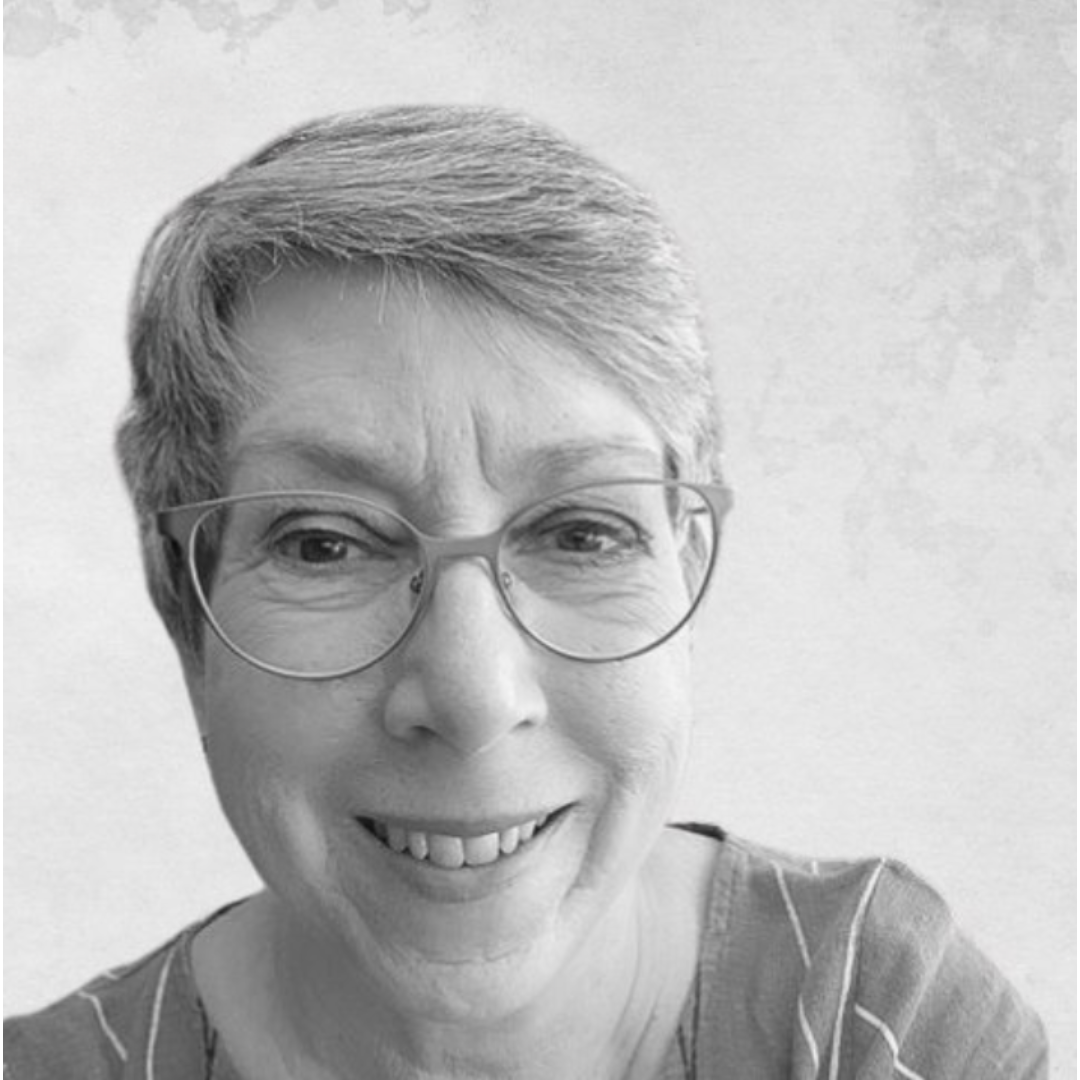The Quality of Humility in a Teacher of God’s Word
By WTI editors and Brad and Ann King, Paris, France
For several years now, the small-to-medium sized ICOC church in Tallinn, Estonia, (https://avastajakogudus.ee ) has hosted an international conference to promote the teaching ministry in our fellowship of churches. Understanding that there is some difference between “teaching” and “preaching,” this event has focused on exploring how the role of Teacher (Acts 13:1, Ephesians 4:11) can be developed and encouraged in the church. This year’s conference was entitled, “Healthy Teaching: Maturing the Church.” The conference website (https://tmc.krist.ee/) has the full roster of presenters and class recordings. The church has made the video recordings available to anyone interested. To listen or view, simply click here. (https://tmc.krist.ee/schedule/)


Since every disciple is a teacher of God’s word in some way, we at WTI thought this handout from one of the classes, entitled “Seeking Humility, Guarding the Teacher’s Heart,” (https://www.youtube.com/watch?v=xtCXMtmTq84) would appeal to a wider audience. Brad and Ann King from the Paris church of Christ, L’Assemblée Chrétienne de Paris (https://www.acparis.net), kindly shared with us this published handout from their class, which we are so happy to pass on to you.
“Clothe yourselves with humility” (1 Peter 5:5, Colossians 3:12)
Attitude towards the Scriptures, the Spirit
• I have found the admonition of James 3:1 to be one of my guiding considerations.
• Every leader/teacher needs to develop two very distinctive voices: (1) “Thus saith the Lord” for direct biblical implementation, and (2) this is my best understanding either theologically or practically. I have found that most people tend to favor one or the other voices rather than really seek discernment.
• Don’t claim to know things that are not clear in scripture. But things that are clear in scripture, hold it out with full force and without apology. Many teachers back off from teaching hard things because they know they are not doing them. Admitting our own failure keeps us humble.
• Always hold the scriptures out between you and your listeners. The scriptures are always right, and if they are placed in your own heart and mind as the genuine authority from which you are teaching, it will keep you humble and also deflect much criticism. Humility is a perception as much as a reality; that is, your own humility and also whether people perceive you as being humble.
• I try to “get out of the way” to allow the Spirit and the Word of God speak to people. So one of the things that helps me is to focus on the Bible and the audience when I’m speaking or teaching. I simply become one of the ways and means through which the Spirit communicates God’s Word to people, and my purpose is to help make it clear.
• Being a humble teacher means being well-prepared, not sloppy or careless—because one recognizes that teaching is a form of stewardship. It requires intentionality and care.
• Reminders of what humility truly looks like. The Beatitudes, especially the first four. Reflecting on Christian hymns like Rock of Ages: “Nothing in my hand I bring: Simply to Thy Cross I cling; Naked, come to Thee for dress; Helpless, look to Thee for grace; Foul, I to the fountain fly; Wash me, Saviour, or I die.”
• I’m a Jesus person. I spend most of my time in the Gospels. I try to keep my focus on Jesus. When I see Jesus, I see humility walking the earth in human form. Jesus is a constant reminder of what it means to be a servant leader who is both meek and gentle.
Self-awareness, own limitations
• Perhaps self-awareness is one necessary tool in the arsenal for staying within shouting distance of humility. A leader must be honest with himself or herself as a starting place.
• I primarily think of myself as a learner. For me, teaching is another form of learning.
• Paul’s consistent awareness of his own limitations gives me hope! Reflecting on texts like 2 Cor 4:7 are important reminders that I am not special and to behave accordingly. I struggle with impostor syndrome – musing on these passages also reminds me that no one is special (or everyone is special) and that helps put the impostor syndrome into perspective.
• The older I get, the less inclined I am to see my work in teaching in Christian community as in some way divorced from the life of discipleship. My attempt to be a rigorous and critical interpreter of scripture is far less a ‘role’ and far more an expression of my love for God and love for people. If love and scholarship do not go hand in hand, it strikes me that something is missing.
• What helps me guard my heart is the thought that I really know only little compared to everything there is to know. This seems to influence the Qohelet’s attitude of “exploring” the vastness of knowledge (Eccle 1:13).
• I try to remind myself of the many Scriptures on pride.
• The older I get, the more I understand that I have no idea how much knowledge and understanding I am missing. “You don’t know what you don’t know.” That used to chafe, that line of thinking. Now I don’t fight it.
• The scripture, “So, if you think you are standing firm, be careful that you don’t fall!” (1 Cor 10:12-13) stands out to me now in technicolor, whereas before when I read it, it seemed only black and white. I used to read the OT stories – all the things that were written to teach us, all the examples and warnings for us – and I read, determined to do everything I could to avoid the sins and pitfalls of humanity that we read about. Now with the (I hope) wisdom and humility of the second half of life, I read them so that WHEN the same sins and pitfalls of humanity occur, I am not surprised or disdainful but determined to trust in God’s righteousness. Still striving to be like him, but understanding better I think, that humanity will always be human. Including the part of humanity that is in our church.
• I just want to be considered one of God's children, regardless of my gift set or role. My identity should not be that of a leader but must be that of a disciple. Dt 17:20 “Then his heart will not be exalted above/not consider himself better than his countrymen …”
• Being a humble teacher means being aware of one’s strengths and weaknesses and being honest about both.
• Listening back to my own messages with an eye on whether they sound ‘human’ or not. Am I being honest? Am I over exaggerating? Do I sound pompous? Do I talk too much about myself, or too little?
• Balance. Praying about my own imperfections is helpful, but if overemphasised, it leads to self-focus. Praising God for his incomparable righteousness is vital. However, I need to keep both in prayer.
Vulnerability
• If I want to bring to others’ attention something that needs to change, then my most effective approach is confession and vulnerable disclosure. I have come to appreciate the understanding that discipleship is much more about modeling and imitation than it is about directive and obedience/conformity.
• After preparing a lesson, go back through it. Everywhere there is the word "we" or "you", replace it with "I" and see if you can still teach it. This will force you to deal with yourself first before looking at other people’s failings and to teach with humility. Don’t back off from teaching a biblical truth because you are failing. Find a way to teach it anyway and admit your own struggle to put "I" there and your own failings. This allows you to hold out the truth with humility.
• Being a humble teacher means confessing and being open about prideful thoughts.
• Someone said that one’s humility cannot be seen except through their humanity. Leaders are a part of the flock who have a role that makes them more visible. Without consistently demonstrating humility through vulnerability, that visibility will lead to pride, and through pride, to all sorts of ills.
• People have said through the years that my openness shows how humble I am, to which I reply that my openness doesn’t demonstrate humility as much as my desire to be humble, and I know that I cannot stay within shouting distance of humility without that openness. I have known but few truly humble leaders who are humble to the core of their being. It is a rare gift. I don’t have it, but I do have a determination to keep fighting for it and to keep fighting against the pride that is ever seeking to get into my heart and manifest itself in ways that will hurt me and others. Leaders are a work in progress, but for the good of all, we had better be working hard to make progress in this vital area of humility.

Seeking input/feedback
• Input from others before and after lessons. In our teaching group’s post-lesson review, it was determined that if something was not taught correctly or sensitively, the teacher was given time to go back to the same audience and correct their mistake (e.g., overstatements, false statements, prideful presentation). It is embarrassing but also humbling and makes one much more careful about teaching in the future. In addition, it impresses the congregation that the accuracy of teaching is being watched.
• Probably the biggest safeguard a teacher in the church can do to stay humble is unquestioned submission to a teacher group. Mutual submission to the idea that the same Spirit lives in the older, experienced teacher as in the young teacher as well as submission to the Spirit is essential for teaching from the Spirit in the church. The Spirit is a spirit of unity, and where the Spirit is, there is unity. If this is understood and practiced in a group of loving, concerned teachers, then humility will always be served through that group. I have experienced gifted teachers who refused to submit to a group. Some were very good, persuasive, accomplished teachers, but the lack of humility disqualified them from being “safe” for teaching in the congregation.
• Humility grows and pride decreases when leaders seek input about themselves and then act on it.
• Channels for growing self-awareness. Trusted people who can speak into my life. They need to have explicit permission.
Attitude towards others
• Treating people the same regardless of social status, wealth, education, etc. People are people. I am no better nor worse than any other person; we are all created in God’s image, and we are all sinners.
• Following Paul’s example, I try to build rapport and seek commonality while appreciating differences. To become all things to all people as I seek mutual understanding and relational unity.
• Listen, learn from, and appreciate the people with whom I’m interacting as well as share myself with them openly and honestly. My goal is to get to know people better and to build or deepen our relationship.
• Help in various ways such as connecting people with one another (e.g., “You should talk to…”), mediating difficult conversations, encouraging peace and mutual understanding, and the like.
• I am conscious of the power differential that can exist when I speak to people without formal theological education about matters of faith. It is my responsibility to be very deliberate in not lording my education over people and ensuring I actively acknowledge and validate other people’s views and opinions. Irrespective of my evaluation of their position, I try to resist the temptation to speak with either a presumptive authority or an intellectually superior tone.
• I learn from those biblical scholars I know personally who carry themselves with a sense of humility.
• Being a humble teacher means recognising that your words and knowledge are a service to others, intended for their spiritual maturity. Teaching isn’t a stage to prove how right you are or how much you know.
• The ability of congregations to digest challenging material is only in part to do with an educator’s ability to adequately present the material. The main issue is trust. Only if a teacher has engendered trust in those he or she attempts to teach will they be able to present complex ideas in a way that is meaningful without being threatening or bewildering. The central part of winning the trust of listeners is humility.
• Before Paul was a formidable debater and brilliant theologian, he was a concerned pastor, whose favourite terms when addressing congregations are brother and sister. Before Paul was a teacher or an evangelist, he was a brother, and I try to always remember that.
Many thanks to Andy Boakye, Malcolm Cox, Fred Faller, Andy and Tammy Fleming, Gordon Ferguson, Joey Harris, Steve Kinnard, Rolan Monje, and Carlos Santos for their thoughtful and edifying responses.


Brad and Ann King
In 1987 God sent Brad and Ann to Paris, where they have lived ever since and raised their two children. Before retiring in 2022, Brad was a co-founder and Field CTO of Scality, an infrastructure software company. Ann was head teacher in a bilingual high school program and taught English literature.
In 2015, Brad was appointed an elder as part of the first eldership in the Paris church. In addition to teaching in the Paris church, Brad and Ann are part of the organizing committees and teachers of EBS (European Bible School) and ESOM (European School of Missions).


Leave a comment
0 Comments